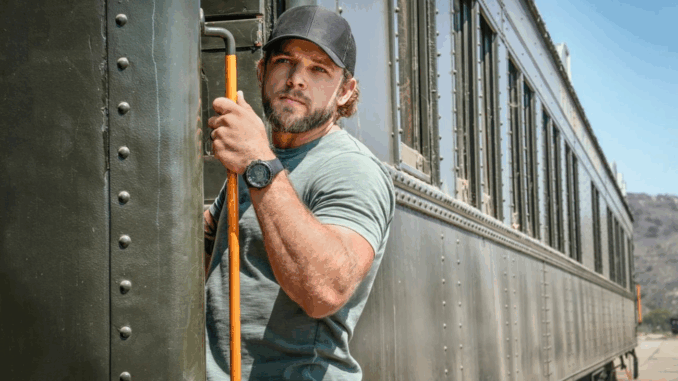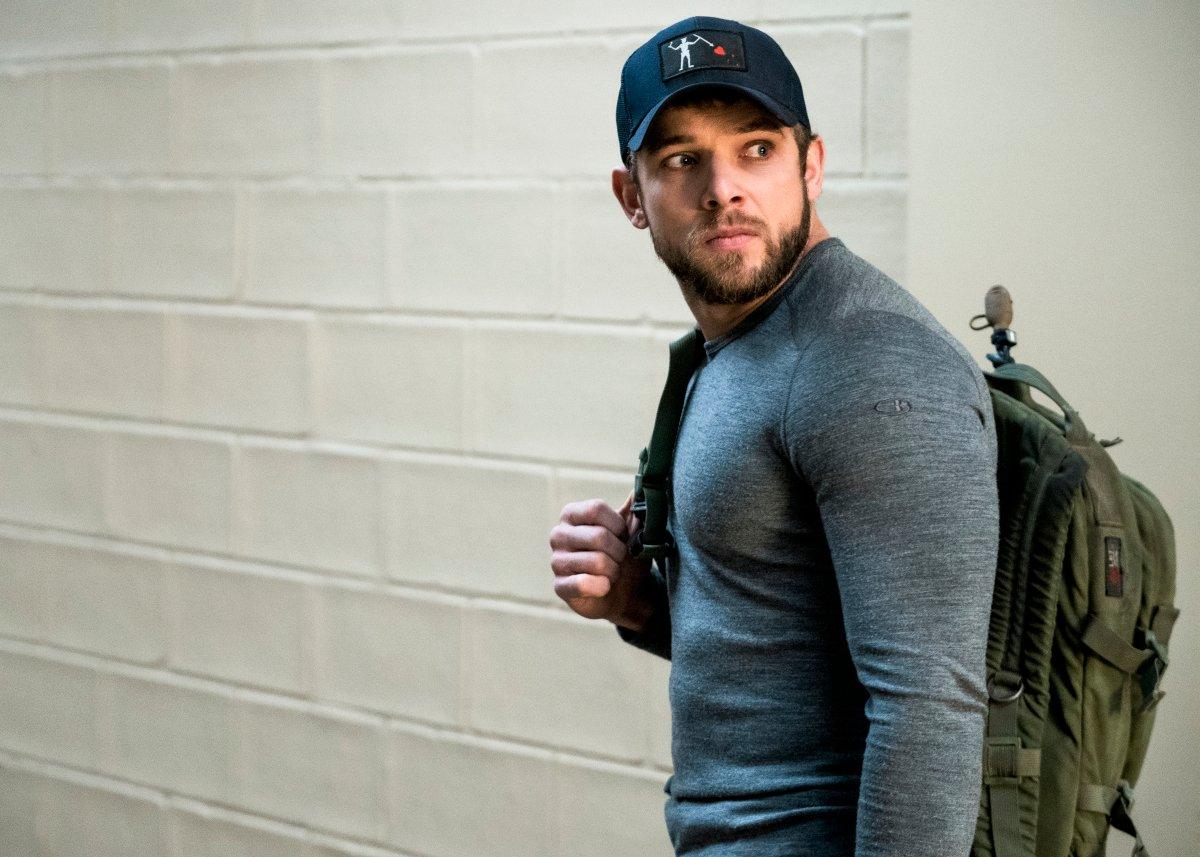
When Fire Country first hit the airwaves, it didn’t just introduce a new action drama to CBS’s lineup—it lit a fire under a genre that had grown predictable. At the center of that blaze is Max Thieriot, not only the star of the series but also its co-creator, executive producer, and creative engine. In an age where TV can often feel like formulaic repetition, Thieriot has done something rare: he made it personal.
In doing so, he didn’t just change his own career trajectory—he changed the face of firefighter dramas on network television.
The Actor Who Refused to Stay in His Lane
Max Thieriot could’ve continued to ride the wave of success he built on shows like Bates Motel and SEAL Team. As an actor, he had proven his range, his presence, and his ability to carry complex characters. But Thieriot wasn’t content to just act—he wanted to tell stories that came from somewhere real. And for him, that place was home.
Raised in Northern California, Thieriot has always been acutely aware of wildfire danger. His small hometown of Occidental, nestled in Sonoma County, is no stranger to evacuations, smoke-filled skies, and the brave crews who put their lives on the line each summer. These lived experiences weren’t just memories—they were emotional catalysts. And when the opportunity arose to create something new, he knew exactly what story he wanted to tell.
That story became Fire Country: a grounded, emotionally intense drama that focuses not just on flames and danger, but on redemption, community, and the cost of heroism.
Writing from the Inside Out
Thieriot didn’t just pitch a show—he built a world. Together with co-creators Tony Phelan and Joan Rater (of Grey’s Anatomy fame), he developed Fire Country as a series that breaks away from the usual tropes of firehouse banter and action-for-action’s-sake. Instead, the show dives deep into its characters’ emotional scars, the ethical murkiness of rehabilitation programs, and the very real trauma faced by those who live in fire zones.
Bode Donovan, the central character played by Thieriot, is not your average leading man. He’s not a squeaky-clean firefighter hero. He’s a convicted felon with a broken family, a complicated past, and a desperate hunger for redemption. And that’s the point.
In creating Bode, Thieriot offers viewers something rarely seen on network TV: a protagonist who is morally gray, emotionally raw, and completely human. It’s no accident that Bode’s story parallels many real-life stories of inmates who participate in California’s Conservation Camp Program—something Thieriot insisted on highlighting.
By writing from his own regional experience and emotional knowledge, Thieriot ensures that every moment in Fire Country feels lived-in, not fabricated.
A Groundbreaking Portrayal of Incarcerated Firefighters

One of the most unique aspects of Fire Country is its portrayal of inmate firefighters. In California, it’s estimated that more than 1,500 incarcerated individuals assist in firefighting operations during wildfire season. These crews often perform grueling, dangerous work for minimal pay and little recognition. Their contribution is massive, but their stories remain largely untold—until now.
Max Thieriot didn’t just want to make them visible. He wanted to make them human.
In Fire Country, Bode and his fellow inmate firefighters are shown in all their complexity. They are brave, broken, angry, loyal, impulsive, and, above all, trying. The show doesn’t offer easy absolution or paint over their crimes—it asks viewers to hold space for both their pasts and their present efforts. This duality is what makes the drama feel so urgent and necessary.
It also opens up broader conversations around criminal justice, second chances, and rehabilitation—topics rarely explored in prime-time television, let alone in a procedural format.
Building a Visual and Emotional Landscape
Thieriot’s influence goes beyond scripting and acting—his fingerprints are all over the show’s visual tone, pacing, and emotional core. As a producer and occasional director, he ensures that Fire Country stays grounded in its emotional truths. That means fewer slow-motion hero shots and more scenes that linger in grief, guilt, and vulnerability.
The fires are real, yes, but the emotional fires burn hotter. Whether it’s a father-son conflict, the guilt of survival, or the shame of past choices, the drama never feels performative. And much of that comes from Thieriot’s insistence on making the show about people first, danger second.
You can feel this ethos in the cinematography—wide shots of the California countryside are not just beautiful but haunting. The flames aren’t glorified; they’re treated with respect and fear. And when a character breaks down, the camera doesn’t look away. These decisions give Fire Country a cinematic weight that elevates it far beyond procedural TV norms.
Elevating the Ensemble—and Himself
While Max Thieriot is the clear lead, Fire Country thrives as an ensemble piece. The dynamic between characters—Bode and his estranged parents, the fire crew and the prison camp team, rookie firefighters and veterans—creates a rich web of tension and connection. This depth is intentional.
Thieriot has spoken often about the importance of giving space for other actors to shine. Whether it’s Billy Burke as his emotionally armored father or Diane Farr as his compassionate yet conflicted mother, the supporting cast is given narrative weight. And in doing so, Thieriot shows a humility that’s rare for a series lead who is also an executive producer.
Rather than centering himself in every frame, he understands the power of ensemble storytelling. It’s not just about Bode’s journey—it’s about how everyone around him is affected, and how each person responds to crisis, trauma, and the hope of healing.
Redefining What a Network Drama Can Be
Fire Country debuted to impressive ratings, but its real victory is creative. In a genre often filled with formulaic beats—fire call, rescue scene, locker room joke—this series offers moral complexity, social relevance, and a deep emotional spine. And that’s largely thanks to Thieriot’s willingness to challenge expectations.
He’s not chasing virality or cheap thrills. He’s crafting something that resonates.
This approach is resonating with critics and fans alike. The show has cultivated a diverse and passionate fan base, with many praising it for its realistic portrayal of small-town dynamics, post-incarceration life, and family tension. And as Fire Country continues into future seasons and potential spin-offs, Thieriot’s creative leadership will be more essential than ever.
What’s Next for Max Thieriot?
Max Thieriot has established himself not just as a leading man but as a multi-hyphenate creative force. With Fire Country’s success, he’s now being looked at as a model for what a modern actor-writer-producer can be: someone who knows the industry, respects his audience, and brings authenticity to everything he touches.
Future projects could include more directing, feature film development, or even expanding Fire Country’s universe through prequels or character-focused spinoffs. Whatever direction he chooses, one thing is clear: Thieriot will continue to tell stories with fire, heart, and purpose.
Conclusion: A Star with Soul
Max Thieriot’s Fire Country isn’t just about danger—it’s about dignity. It’s about people trying to find their place in a world that has burned them, sometimes literally, sometimes metaphorically. And by giving them voice, Thieriot has not only redefined his own career—he’s redefined what television drama can be.
He didn’t just create a hit show.
He created a movement.
